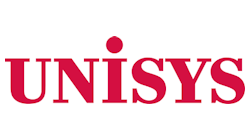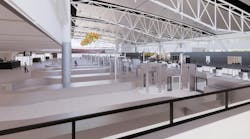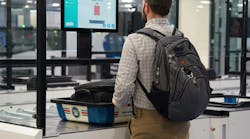Cybersecurity is easily one of the most pressing issues facing businesses today, and that threat is equally present in the world of aviation. Recent hacks like the Equifax breach reiterate how damaging an attack can be, both financially and to a company’s reputation.
In light of these high profile breaches frequenting the headlines, it’s no surprise that consumer security concerns globally are at an all-time high. The 2017 Unisys Security Index, which explored the attitudes of consumers on a wide range of security-related issues, topped out at 173 out of a possible 300 points – a full 20 percent higher than in 2014, the last time the global Unisys Security Index was fielded.
The Unique Position of the Transportation Industry
The transportation industry stands at the intersection of multiple security concerns, including national security, financial security, Internet security and personal security. To appreciate the unique position of the transportation industry, particularly of airlines and airports, consider the statistics as reported by the Unisys Security Index, which found that:
- 65 percent of respondents are extremely or very concerned about identity theft
- 64 percent of respondents are extremely or very concerned about bankcard fraud
- 59 percent of respondents are extremely or very concerned about war and terrorism
- 51 percent of respondents are extremely or very concerned about online transactions
- 46 percent of respondents are extremely or very concerned about personal safety over the next six months
Hacking an airline or airport system can have ramifications across all four major categories of concern. For example, a network breach could enable a hacker to steal a traveler’s personally identifiable information (PII) to forge a new identity, take out loans, and commit crimes (personal security), or use a traveler’s credit card number to make purchases (financial security). A hacker could also conceivably remove a criminal’s data from a facial recognition system, allowing him to board a plane incognito to carry out a terrorist attack (national security), snatch a person’s credit card data while she is making a reservation online (Internet security).
All of this – from a personal catastrophe to a national catastrophe – is possible because many systems and formerly discrete physical assets in airlines and airports are now connected in cyberspace. If a hacker breaks into one, he may gain access to many. Prevention and proactive monitoring, therefore, have never been more important.
This is not to say that security is absent in the transportation industry. Obviously, there are strict rules and regulations in place around the world to govern data privacy, financial transactions, and systems security. Organizations such as the International Air Transport Association (IATA) and the International Civil Aviation Organization (ICAO) provide valuable input on standards, approaches, and best practices for aviation security and governance.
In the wake of the 9/11 terrorist attacks in the United States, security has been tightened for both passenger and cargo transportation. Computed tomography (CT) scanners, explosive detection systems (EDS), nuclear and radiological detection, video surveillance, and even biometric scans are all becoming commonplace.
Better, Smarter, Faster Security
While an airline or airport would not set out to cut corners when it comes to security, the security in place may not be enough to meet today’s multiplying risks.
So what does “better, smarter, faster” security look like for the transportation industry? There are four building blocks that form the foundation for dynamic security that can keep abreast of the changing threat landscape: microsegmentation, machine learning, encryption, and analytics.
Such an approach can also, by virtue of the leading-edge technology involved, be administered without straining budgets and resources. Vendor, partner, stakeholder, and customer satisfaction is supported since these technologies are seamless to the end user, simplifying daily operations and communications.
With anxieties growing about national, financial, Internet, and personal security, airlines and airports need to lead with security. Vulnerabilities must be addressed, and addressed quickly. Through microsegmentation, encryption, machine learning, and advanced analytics, the transportation industry can meet the multiple risks and threats of today head on – and soar skyward.
Dheeraj Kohli is Vice President and the Global Head of Travel and Transportation for Blue Bell-based Unisys Corporation. He can be reached at [email protected].




